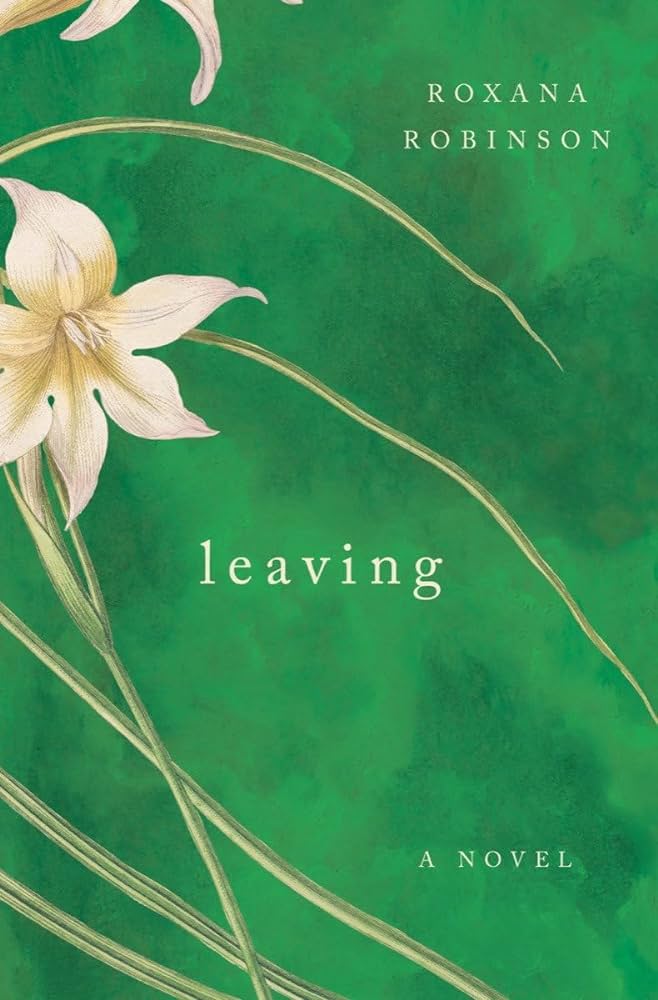
“I never thought I’d see you here,” Sarah says. Then she adds, “But I never thought I’d see you anywhere.”
They’re at the opera house, on the second floor, near the head of the grand staircase. He’s facing her, leaning his hips against the railing, hands set lightly on either side. Beyond him, in the high open space of the atrium, hang the glittering crystal chandeliers, frozen starbursts. Below, people move up and down the broad red-carpeted staircase, hurrying but stately. They are mostly over fifty, this is the second intermission, and there is only so much time left to meet someone, eat something, drink something, void, before the caped ushers begin playing their little xylophones, the bright tuneless melodies announcing the last act.
She had known him at once. His younger face is still visible within this older one, though this one is creased now, hollowed here, fuller there. The same square shape, same bright brown eyes and wide brow. The same thick light-brown hair, though now not so thick. The same fierce vitality in the gaze.
“I always thought I’d see you somewhere,” he says. He looks directly into her eyes. He’d always done this, looked straight into her, as though she were important. It had always unnerved her. “You look just the same.”
She smiles but shakes her head.
“You know what I mean,” he says. “You do. Your eyes.”
They had been close at one time.
*
After the last curtain call—the dark-haired soprano curtsying deeply and charmingly, kissing her fingertips to the audience as plastic-wrapped bouquets thud onto the stage, before the swirling gold curtain is finally drawn for good—Sarah stands, putting on her jacket. She buttons it as she inches her way across the row of seats to join the slow scrum in the aisle. She glances around for Warren, though he’d told her he was on the other side of the house. Almost as soon as they’d met, the little xylophones had begun their atonal melodies, and they’d had to part. He’d asked her to come out for a drink afterward but she’d said no. She’d said it would be too late.
Actually it had been too sudden. She couldn’t decide, in that moment, if she wanted to sit across from him again, letting him look into her. He asked for her email address but he hadn’t written it down; she thinks he’ll forget it. It’s so easy to forget those addresses, which seem in the moment so obvious, so unforgettable, clara38@whatever, but they’re also obvious in all their other iterations, too, was it clara39@somewhereelse, or clarab38? Hers is simple and obvious. She thinks he’ll forget it.
*
He hadn’t forgotten her address.
His first message is short. I was glad to see you. She doesn’t answer at once. It’s the tone that concerns her. He’s married, she knows that. What does she want? But she was glad to see him. She’s allowed to be a friend. Finally she writes back, Yes. Me too.
He writes again. He’s coming to New York on business next month; will she meet him for dinner? She thinks about it. The speed of email telescopes time, so that thinking about it for a few hours seems like days. Coming into the city for dinner is complicated for her: she lives in northern Westchester, over an hour away. It really means spending the night. She doesn’t like driving home late, alone, her head fumed with wine. But she has a friend with a spare bedroom, who always offers it. She writes back, Yes.
They meet at the restaurant, a fancy one on the West Side. Along the street are big plate-glass windows. As Sarah walks along the sidewalk, her little suitcase trundling behind her, she sees him inside. He’s at a table in the middle of the room, very upright. His elbows are set elegantly on the table, hands clasped. He’s watching the door.
As she comes in he smiles at her, spreading open both hands in celebration.
The restaurant is modern and expensive. The latter is evident from the heightened awareness of everyone in the room, the slightly hostile deference of the headwaiter; the attentive, slightly condescending waiters, the sharp sidelong glances of the diners. The glitter of earrings and bracelets. Along the inner wall, more plate-glass windows give onto the kitchen, where chefs in white coats move swiftly, chopping and stirring and slicing, among white tile and stainless steel, pots and knives, steam and flame. The kitchen is like a silent movie, the workers framed, frenetic, soundless.
Warren stands to greet her, smiling.
“Thank you,” she says, sliding onto the banquette. When he sits down their faces are close, and he looks directly into her eyes.
Unsettled, she speaks to break the silence.
“I don’t think men stand up for women anymore,” she says. “Do they? When we were kids, my father would say to my brother, ‘Stand up when your mother comes into the room.’ Do you remember? No one does that now.”
“The culture of our youth,” he says. “Gone.”
“Good riddance, most of it,” she says. “All those rules.”
“It’s good to see you,” he says.
Thirty years, anyway. Nearly forty.
__________________________________
From Leaving by Roxana Robinson. Used with permission of the publisher, W. W. Norton. Copyright © 2024 by Roxana Robinson.


